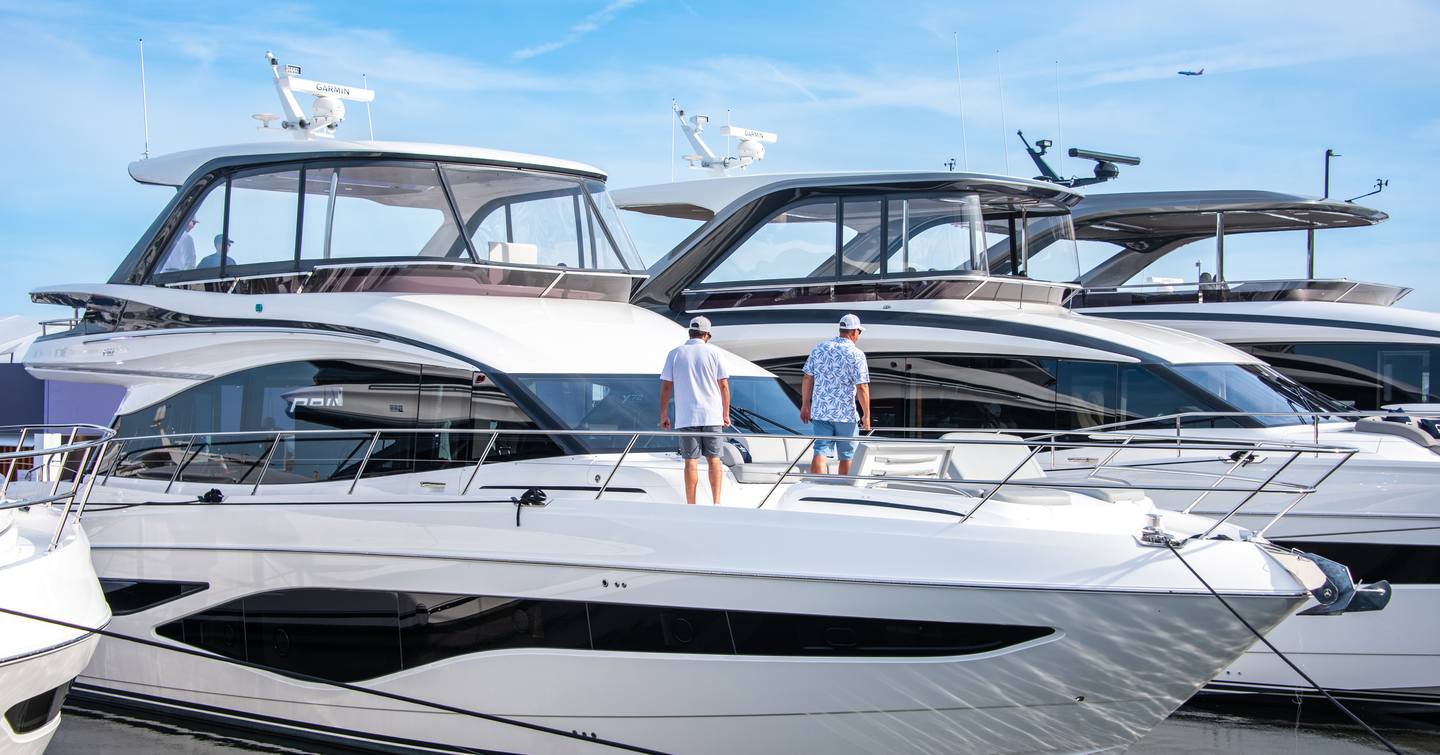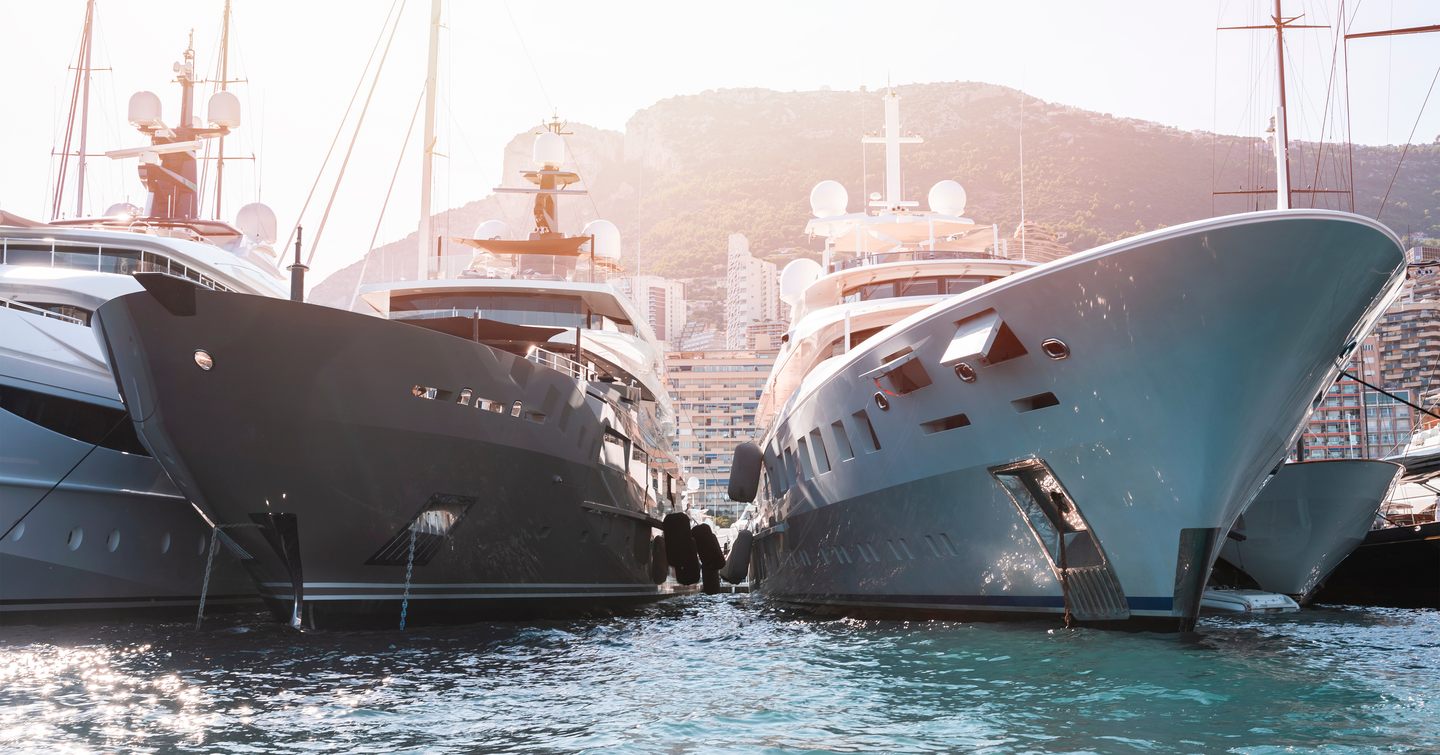As you explore YachtBuyer's pages, you'll frequently encounter mentions of Lloyd's Register. But what exactly is Lloyd's Register, and why does it consistently appear in the Top100 and YB100 lists of the world’s biggest yachts?
What is Lloyd’s Register for yachts, and why does it matter? If you’re buying, owning, or building a yacht, understanding Lloyd’s Register can help you ensure safety, quality, and compliance. As one of the oldest and most trusted maritime classification societies in the world, Lloyd’s Register plays a key role in yacht certification, inspections, and standards. In this guide, we’ll break down what Lloyd’s Register is, what it means for yacht owners, and how it affects your vessel's value, safety, and legal status.

The History of Lloyd's Register: How It Began
Established in 1760, Lloyd's Register emerged in response to pressing maritime challenges during a period of global trade expansion. Shipowners and merchants grappled with uncertainties regarding vessel seaworthiness and safety, necessitating a reliable source for assessing ship conditions.
A group of London-based merchants and shipowners, linked to Lloyd's Coffee House, founded Lloyd's Register to address this need. Their primary objective was to offer independent and accurate ship assessments, systematically evaluating seaworthiness and overall conditions. This initiative aimed to reduce risks for shipowners and insurers, instilling confidence in maritime trade.
Lloyd's Register's pioneering approach in creating a classification society laid the groundwork for contemporary maritime classification and verification services. Evolving over centuries, it has become a globally recognized institution, playing a pivotal role in shaping industry standards. Today, its influence extends to ensuring the safety and quality of vessels across diverse sectors, including the sophisticated realm of superyachts.
Is Lloyd's Register the Same as Lloyd's of London?
loyd’s Register and Lloyd’s of London are not the same.
Lloyd’s Register is a maritime classification society that provides engineering and safety standards for ships, yachts, and offshore structures.
Lloyd’s of London is an insurance marketplace where underwriters and brokers come together to insure various risks — including, but not limited to, marine vessels.
Despite their similar names and shared historical roots in maritime commerce, they are completely separate organizations with different functions. Here's how they compare:
| Aspect | Lloyd’s Register | Lloyd’s of London |
|---|---|---|
| Type of Organization | Maritime classification society | Insurance marketplace |
| Main Function | Sets engineering and safety standards for ships, yachts, and offshore structures | Facilitates underwriting and brokering of insurance for a wide range of risks |
| Industries Served | Maritime, offshore energy, yachting, shipping | Insurance (marine, aviation, property, casualty, specialty) |
| Founded | 1760 (as a ship classification society) | 1686 (as an insurance market) |
| Relation to Each Other | Independent organization, originally based on shared maritime roots | Separate entity with no operational connection to Lloyd’s Register |
| Website | lr.org | lloyds.com |
How Does the Lloyd's Register Support Maritime Certifications?
Lloyd's Register plays a pivotal role in enhancing safety and performance standards across the maritime sector. With a commitment to impartiality and integrity, it operates as an independent entity, ensuring that the vessels it surveys adhere to rigorous safety and environmental standards.
The organization employs a team of highly skilled and experienced surveyors who conduct inspections and assessments to verify compliance with international regulations and industry-specific requirements.
Maritime classification
Maritime classification is the development, publication, and global implementation of rules that define standards of quality, safety, and reliability of ships.
As a leading member of the International Association of Classification Societies, Lloyds Register collaborates to establish the technical standards and benchmarks for maritime design, construction and safety, operational efficiency, and environmental challenges.

The Role of Lloyd’s Register in Yacht Transactions
When buying or selling a yacht—especially larger, high-value, or commercially registered vessels—Lloyd’s Register (LR) can play a critical role. As a leading maritime classification society, LR ensures that a yacht meets rigorous standards of construction, safety, and operation.
Their involvement not only boosts buyer confidence but also helps maintain or increase the vessel’s resale value. In many yacht transactions, having Lloyd’s classification or an LR-issued certificate can streamline inspections, financing, insurance, and flag-state compliance.
| Stage of Transaction | Role of Lloyd’s Register | Why It Matters |
|---|---|---|
| Design & Construction | LR sets and verifies compliance with structural, mechanical, and safety standards during the build. | Ensures the yacht is built to internationally recognized standards; improves marketability. |
| Survey & Classification | Issues certificates confirming classification status after regular inspections and surveys. | Proves ongoing seaworthiness; often required for insurance or charter licensing. |
| Pre-Purchase Inspection | Buyers may request recent LR survey reports or commission an LR-endorsed inspection. | Boosts buyer confidence and reduces due diligence time. |
| Documentation | Provides classification certificates and compliance documents for registry or flag-state approval. | Helps streamline registration under preferred flags and legal jurisdictions. |
| Refit or Conversion | LR oversees major refits to ensure updates comply with classification rules. | Preserves classification, enabling smooth resale or commercial use post-upgrade. |
| Sale & Transfer | LR records can be reviewed during sale to verify compliance and maintenance history. | Increases transparency; often a selling point for premium yachts. |

How Do I Get a Yacht Classified by Lloyd’s Register?
Contact LR Early in the Design Phase
Reach out to Lloyd’s Register during the planning or pre-construction phase. Their surveyors and engineers will review your yacht’s design to ensure it meets LR’s rules and standards for classification.
Submit Technical Documentation
You or your naval architect must submit detailed drawings, specifications, and engineering documents. LR will evaluate elements like hull structure, stability, machinery, fire safety, electrical systems, and more.
Undergo Construction Inspections
During the build, LR surveyors will inspect the yacht at key stages (e.g., hull plating, engine installation, system integration) to ensure compliance with approved plans and classification rules.
Perform Final Survey and Sea Trials
Once construction is complete, LR will carry out a final inspection and observe sea trials to verify performance, safety, and compliance.
Receive Classification Certificate
If the yacht passes all inspections and tests, LR will issue a Certificate of Classification. This confirms the yacht is built and maintained to Lloyd’s standards.
Maintain Class with Periodic Surveys
To keep the classification valid, the yacht must undergo regular surveys — typically annually and every 5 years — to ensure ongoing compliance.
Retroactive classification (for existing yachts) may be possible but requires a full inspection and possible modifications. The yacht must adhere to both Lloyd’s Rules for Yachts and IMO regulations (if applicable).
YachtBuyer Mentioning Lloyd's Register - What's the Purpose?
At YachtBuyer we include reference to Lloyds Register in the design and construction sections of our superyachts listings.
Superyachts, characterized by their size, complexity, and luxurious features, demand meticulous attention to safety and structural integrity. Lloyd's Register plays a pivotal role in assessing and verifying the design, construction, and materials used in these high-end vessels. Its classification process involves rigorous inspections, testing, and adherence to industry best practices, assuring owners, insurers, and regulatory authorities.

Beyond the immediate construction phase, Lloyd's Register plays a key role in enhancing the marketability and resale value of superyachts. The classification mark serves as a respected endorsement, signifying compliance with industry standards. In an industry where excellence is crucial, Lloyd's Register's commitment to upholding criteria ensures the reliability, safety, and overall quality of superyachts, reinforcing its important role in this exclusive sector.
What Is Lloyd's Register of American Yachts?
The Lloyd’s Register of American Yachts was a prestigious directory published annually by Lloyd’s Register of Shipping starting in the early 1900s. It functioned much like a "Who's Who" of American yacht ownership, listing privately owned yachts that met specific standards of seaworthiness, construction, and equipment. Inclusion in the register was considered a mark of status and credibility in the yachting world.
Unlike classification for commercial vessels, the register focused on private yachts and was voluntary, but owners who were included benefited from recognition, standardized documentation, and a strong network of peers. It served insurance underwriters, maritime historians, and yachting clubs as a reference for trustworthy vessel information.
Although it's no longer actively published, historical editions remain valuable for collectors, researchers, and classic yacht owners looking to trace a vessel's legacy.
Key Features of Lloyd’s Register of American Yachts
| Feature | Description |
|---|---|
| Purpose | To document and recognize privately owned American yachts that met Lloyd's standards. |
| First Published | 1903 (by Lloyd’s Register of Shipping) |
| Contents | Yacht names, owners, dimensions, builder details, port of registry, and engine specs. |
| Eligibility | Voluntary registration for American yachts that passed survey and met build quality criteria. |
| Status Symbol | Being listed indicated prestige, reliability, and commitment to maritime standards. |
| Modern Use | Now considered a historical reference, useful for research, appraisals, and provenance tracking. |
What Other Organizations Are Similar to Lloyd's Register?
While Lloyd’s Register (LR) is one of the most recognized names in maritime classification, superyachts are not limited to following LR standards alone. Several prominent global classification societies provide essential services in the construction, certification, and ongoing inspection of large yachts. These societies ensure vessels comply with international safety, structural, and environmental standards.
Superyacht builders and owners often select a classification society based on factors such as:
- Reputation in the industry
- Technical expertise and service availability
- Geographic proximity to shipyards
- Specific flag state or insurer requirements
- Owner or designer preference
Below are the major classification societies commonly involved in superyacht construction and certification:
| Classification Society | Headquarters | Key Role in Yachting | Website |
|---|---|---|---|
| Lloyd’s Register (LR) | London, UK | One of the oldest societies; offers full classification services for yachts, ships, and offshore structures. | lr.org |
| DNV | Oslo, Norway | Formed by the merger of Det Norske Veritas and Germanischer Lloyd; strong in offshore and large yacht sectors. | dnv.com |
| American Bureau of Shipping (ABS) | Houston, USA | Leading U.S.-based society; active in both commercial marine and luxury yacht markets. | eagle.org |
| Bureau Veritas (BV) | Paris, France | Global leader in inspection and certification; widely used for superyachts and offshore structures. | bureauveritas.com |
| RINA | Genoa, Italy | Strong presence in Italy; often selected by Mediterranean yacht builders and design firms. | rina.org |

Final Thougths: More Than Maritime
Understanding yacht classification is just one piece of the puzzle — now it’s time to bring your dream yacht to life.
Whether you're looking for a brand-new build with the latest in engineering and comfort, or a pre-owned vessel with a strong pedigree and class certification, having the right knowledge — and the right team — makes all the difference.
Explore our Yacht Buyer’s yacht for sale listings to choose, inspect, and purchase your first yacht with confidence. From technical due diligence to luxury must-haves, we’ll walk you through the entire process — no sea legs required. Yacht Buyer is the world's biggest yacht selling platform that scans the entire market to ensure access to all genuine listings, saving you time. Alternatively, you can view all yachts for sale.


